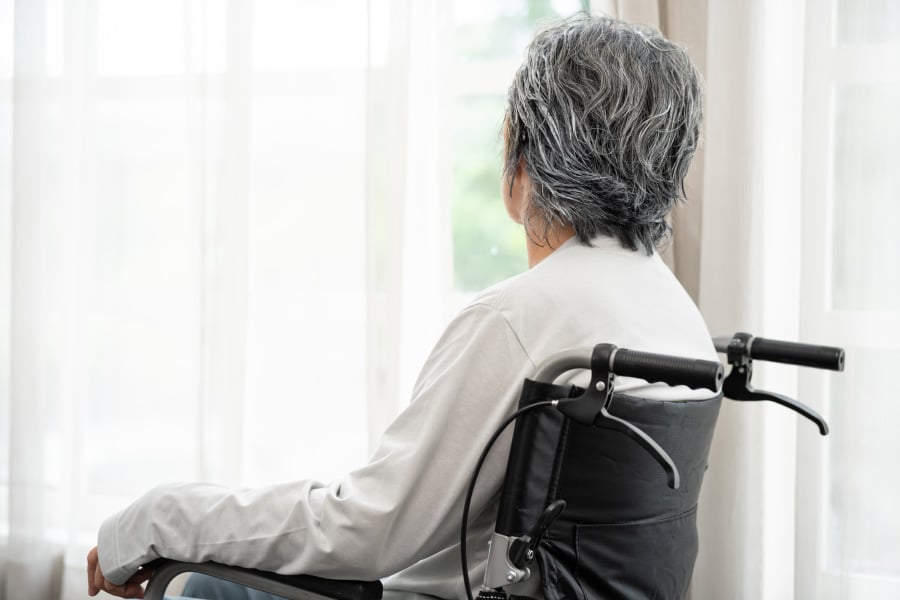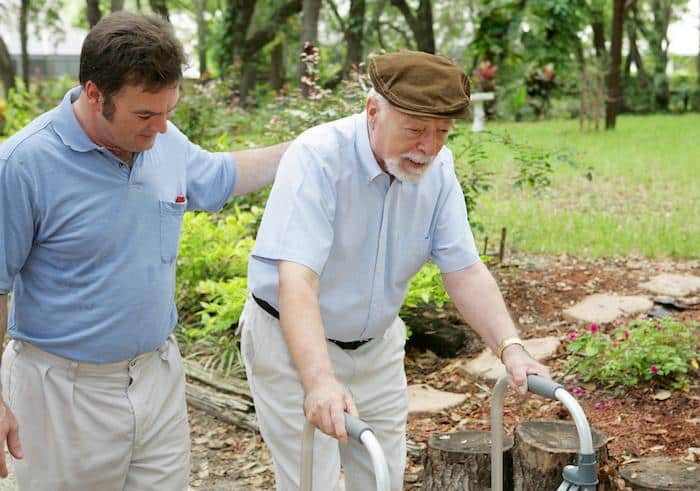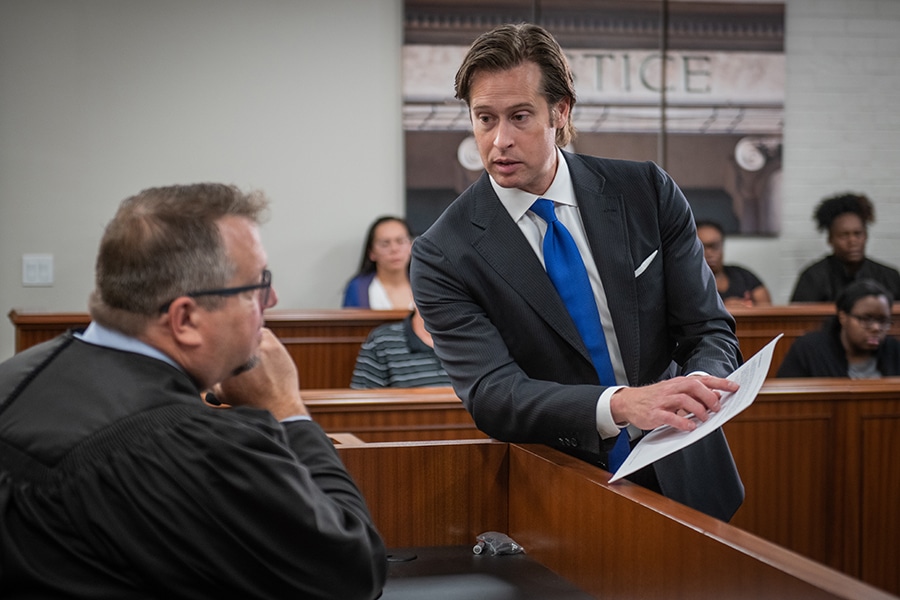
Hold Caregivers accountable for their neglect
If you believe that your loved one has suffered nursing home abuse or neglect, the Colorado nursing home neglect lawyers at McDivitt Law Firm can help. Our law firm has over 50 years of experience helping families in Colorado hold negligent caregivers and institutions responsible for abuse and neglect. We will fight for your family during this time, so you can focus on helping your loved one heal from the abuse.
Many of us have relatives and loved ones in nursing homes, and we trust they are being well cared for. Most of the time nursing homes provide necessary resources, support, and medical attention for our family members. But unfortunately, when patients are ignored or abused, the results can be devastating.

Do I need an attorney?
Allegations of nursing home abuse are serious and are not treated lightly. There is often an intensive investigation that must be performed to establish negligence and liability in a nursing home abuse case. Lawsuits against nursing homes can be complicated because they often involve federal and state violations, criminal investigation, and wrongful death claims. In order to win your lawsuit, it is important to have an experienced nursing home abuse attorney on your side from the start. Your attorney will be able to build a solid case against the negligent facility and help protect your rights to compensation.

Why choose us?
For over 50 years, the nursing home abuse lawyers at McDivitt Law Firm have supported nursing home victims and their families as they heal from this heartbreaking experience. We are able to quickly build a solid case for our clients that is designed to recover maximum compensation. After an accident, we work quickly to get you and your loved ones the money you need to pay for medical expenses and recovery. While we make every attempt to settle nursing home cases out of court, we are experienced litigators who aren’t afraid to go toe-to-toe with large insurance companies.

The growing problem of nursing home abuse
Sadly, almost two million seniors over the age of 65 have been mistreated, exploited, neglected, or injured by a caregiver. Even more shocking, only 1 in 14 incidents of elder abuse are ever reported or discovered. Many of these abuse cases occur in nursing home settings and long-term care facilities. By 2050, more than 20% of the population will be over the age of 65. As the elderly population in our country continues to grow, those numbers will only increase and it’s important to proactively prevent nursing home abuse.
Compounding the problem is that a growing number of nursing homes are cited routinely for deficiencies, including understaffing or hiring inadequately trained staff to care for their patients. About 97% of nursing homes do not have enough nurses or nurse assistants to provide proper care for their residents, further increasing the likelihood of suffering nursing home neglect or abuse.
Check out our infographic nursing home abuse.
Pay Nothing Until McDivitt Wins For You.
“The service I got for my workman’s compensation was excellent. Very intelligent, honest, and gave sound advice. I was very pleased with my attorney. My case manager was also a lifesaver at more than one time.”
What is nursing home abuse?
Nursing home abuse occurs when elderly residents of a nursing home or long-term care facility suffer harm because of the negligent or reckless acts of their caregivers. It can be devastating to learn that your loved one has suffered abuse or neglect by the very people you trusted to care for them. When this occurs, the nursing home can be held liable for nursing home negligence, abuse, or inadequate care. After all, a nursing home has a responsibility to their residents to ensure their safety. This includes properly screening employees, providing adequate supervision of their employees, and properly maintaining the facility. When nursing homes fail to do this, they allow a culture of abuse and neglect to go unchecked.
Neglect is abuse
Neglect is a form of abuse, but it can be easily overlooked. When a nursing home neglects their residents, this can create enormous emotional and physical harm. Residents can suffer sunburn, bed sores, and low self-esteem. They can suffer from depression, become malnourished, or experience fatal falls. Neglect can occur in many ways, but it often includes the failure to provide supervision, nourishment or medical care to a resident in need. Nursing homes have a responsibility to ensure the safety of their residents. Families trust nursing homes, their staff, and their caregivers to provide a caring and supportive environment for their loved ones, while also tending to their daily needs and medical issues. When a nursing home or their staff fails in this duty, they can – and should – be held responsible for the neglect.
Types of nursing home abuse
When most people hear the words “nursing home abuse,” they immediately imagine physical abuse. But in reality, there are seven different types of nursing home abuses recognized by the National Center on Elder Abuse. Each type of abuse has its own unique signs and symptoms to watch for, and family members should be aware of these abuses. Any type of nursing home abuse is devastating and we’re here to help support your family through the process of healing from the effects of abuse.
- Physical Abuse – the elderly are at risk of being physically abused and injured. Examples of physical abuse include burning, pushing, or shaking an elderly resident. Physical abuse can also involve using drugs inappropriately, improper use of physical restraints, and force-feeding. Signs of physical abuse include scars, lacerations, bruises, broken bones, marks from restraints, reports of being slapped or kicked, and changes in personality or behavior.
- Sexual Abuse – caregivers who have non-consensual sex with an elderly resident are guilty of sexual abuse. Any type of sexual contact with an elder who is unable to consent is also sexual abuse. This includes sexual assault, rape, sodomy, and taking nude pictures. Signs include unexplained STDs, genital infections, or bruises on genitals.
- Sexual Abuse – caregivers who have non-consensual sex with an elderly resident are guilty of sexual abuse. Any type of sexual contact with an elder who is unable to consent is also sexual abuse. This includes sexual assault, rape, sodomy, and taking nude pictures. Signs include unexplained STDs, genital infections, or bruises on genitals.
- Emotional Abuse – when a caregiver inflicts emotional pain and suffering on an elderly resident, this is emotional abuse. It can include verbal assaults, humiliation, threats, intimidation, yelling, and isolation. Symptoms of emotional abuse include suddenly becoming withdrawn, agitation, depression or anxiety.
- Neglect – refusing to properly care for an elderly person, dementia patient, or resident can be considered neglect. Neglect can include withholding food, improper supervision, failure to perform daily hygiene, or letting an incapacitated person sit in urine or excrement. Signs of neglect include unsanitary or hazardous living conditions, untreated bed sores, malnutrition, and dehydration.
- Abandonment – if a caregiver deserts an elderly or incapacitated senior, they are guilty of abandonment. Signs of abandonment include verbal reports of abandonment or finding an elderly patient alone in a public place or uncared for in a facility.
- Financial – financial abuse is one of the most common forms of elder abuse. It’s the illegal use of an elderly person’s money or property, and it includes forging checks, coercing an elderly person to sign documents, taking cash from them, and stealing possessions. Signs of financial abuse include changes in the bank account, seeing large amounts of money withdrawn, and changes to important documents, such as wills.
- Self-neglect – this form of abuse is when an elder engages in behaviors that threaten their own safety or health. This is most often seen with dementia patients and includes refusal to drink or eat, improper use of medications, and refusal to perform daily hygiene. Signs include sudden homelessness, living with dangerous conditions, failure to wear glasses or hearing aids, and living in unsanitary conditions.
“I am totally satisfied with the service I received from McDivitt Law Firm. My attorney was very professional throughout the entire process with my best interest in mind.”
Frank H.
The true costs of nursing home abuse
Nursing home neglect and abuse impacts seniors and their families in numerous ways and the true cost of this abuse is staggering.
- Physical impact – The physical impact of nursing home abuse can be horrific. Patients may suffer from bed sores, lacerations, increased pain, nutrition and dehydration issues, sexually transmitted diseases, bruises, broken bones, and burns.
- Medical costs – The costs associated with treating the physical signs of abuse can be higher than many people realize, and may include hospitalizations, surgeries, and long-term disability care. Nursing home neglect and abuse costs $2.8 billion every year in Medicare hospital costs alone.
- Psychological trauma – the psychological impact of nursing home abuse cannot be overstated. Seniors who have suffered abuse may be more likely to suffer from depression, anxiety, and PTSD. Sadly, seniors who are already suffering from dementia are easy targets for abuse, thus further impacting their care and treatment.
- Financial losses – financial abuse costs Americans more than $2.6 billion every year. Seniors who have been financially abused by their care providers may suffer large economic losses for their businesses and their families. Any settlement should take into consideration any financial losses that were sustained as a result of the abuse.

You deserve fair compensation
If your loved one experienced nursing home abuse, you should not have to suffer financial consequences on top of the physical and emotional pain. Our legal team at McDivitt Law Firm chose to specialize in nursing home law because they’re passionate about defending the rights of Colorado residents.
We will only take your case if we think we can help. We work on contingency, which means we will fight to recover the greatest compensation for your case, and we only get a fee when we win for you.
Nursing home neglect frequently asked questions
What should I do if I suspect my loved one is being abused or neglected in a Colorado nursing home?
It’s a terrifying experience to think your loved one is being abused or neglected. If you believe that your loved one is a victim of nursing home neglect, contact an attorney immediately to determine your next course of action.
How long do I have to file a nursing home abuse claim against a care facility in Colorado?
Anyone who’s been harmed in a nursing home can file a claim for compensation. But you don’t have unlimited time to file your claim. We’ll share information about the claim filing deadline and touch on various factors affecting the statute of limitations.
In Colorado, the standard statute of limitations for nursing home abuse cases is two years. This means you have two years from the moment the abuse happened to file the case.
The statute of limitations may change depending on where the abuse took place. If the alleged abuse happened at a government care facility, the lawsuit filing deadline drops to only 180 days. This short timeframe makes it vital to hire a nursing home abuse lawyer right away.
Keep in mind that the two-year statute of limitations only refers to the time you have to file a suit. There is a separate statute of limitations for criminal charges. For example, if an employee of a care facility commits felony assault, they can be charged up to three years after the act occurred.
Since you don’t have long to file a lawsuit, it’s a good idea to contact a lawyer as soon as you suspect anything. Once you hire one, they’ll quickly gather the information necessary to file a case, ensuring you can get the compensation you deserve.
How long does it take to settle a nursing home neglect claim?
Nursing home neglect cases can take months or years to fully resolve. These are complex cases that are not usually resolved quickly. When you meet with your attorney, they will be able to provide you with more details and review all of your legal options.
How can I prove nursing home neglect or abuse?
Proving nursing home abuse isn’t always easy. If you believe that your loved one is being neglected, try to obtain records of their care. Look for irregularities and make notes of any suspicious injuries. Take this evidence to an attorney immediately to begin reviewing your legal options.
Who can file a nursing home neglect lawsuit?
A nursing home abuse lawsuit can be filed by either the resident that has been abused or their family members.
How much is a nursing home neglect lawsuit worth?
How much your case is worth depends on many factors, including:
- The length the abuse continued
- The type of abuse inflicted
- Types of injuries sustained
- Future medical costs
- Present medical costs
- Pain and suffering

Results & case studies
We’re there when you need us
If your loved one has suffered abuse or neglect in a nursing home or care facility in Colorado, you need an experienced and compassionate Colorado nursing home neglect law firm on your side. Our nursing home abuse and negligence team will help ensure that the nursing home is held accountable for its neglect or abuse and that your loved one is compensated for injuries or illness. At McDivitt Law Firm, we have offices conveniently located throughout Greater Colorado. With offices in Downtown Colorado Springs, Denver, and Pueblo, our attorneys are ready to assist you in a moment’s notice.
